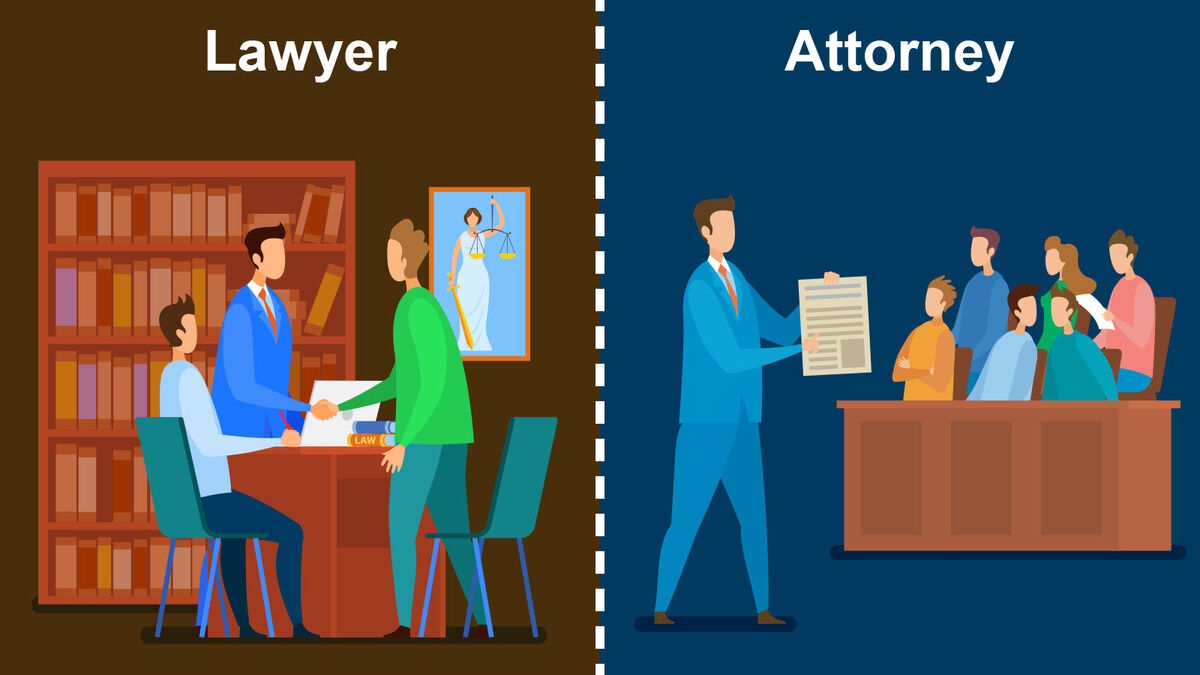
For general purposes, an attorney and a lawyer are the same thing in the U.S. However, from a professional standpoint, there is a subtle difference between lawyers and attorneys. Settle the attorney vs. lawyer debate with cold, hard facts.
What Is a Lawyer?
If you look in a legal dictionary, like NOLO’s legal dictionary, there is no listed definition for “lawyer,” but you are referred to look up “attorney.”
In a standard dictionary, a lawyer is “someone who gives legal advice and represents people in legal matters.”
What Is an Attorney?
Attorney is the shortened form of attorney at law, or attorney-at-law. An attorney is defined as “a professional who has graduated from law school and who is licensed to represent clients in legal matters.”
The presence of this title in legal dictionaries suggests that attorney is the official name of a practicing lawyer.
Main Differences Between a Lawyer and an Attorney
An attorney is always a lawyer, but a lawyer isn’t always an attorney. Here’s why:
- Anyone who has graduated from law school could be called a lawyer.
- An attorney must have graduated from law school, passed the bar, and will practice law in court.
- Lawyers often give legal advice and don’t practice law in court.
Similarities Between Lawyers and Attorneys
Lawyers and attorneys have to meet the same education requirements. They are often required to take a Juris Doctor (J.D.) degree from an American Bar Association (ABA) accredited law school. These are post-graduate programs.
Both lawyers and attorneys who have been admitted to the bar and may practice law by representing clients and cases in a court of law.
Words Related to Lawyer and Attorney
Whether you’re watching a legal drama or looking for legal advice, you’ll hear lots of different terms describing people who help with legal matters. Knowing what each means can save you time and money.
Advocate vs. Lawyer vs. Attorney
An advocate is a person legally qualified to plead the case for someone else in court. In the U.S., advocate is often used as a synonym for lawyer and attorney, but legal advocates don’t actually have to have the same professional background and certifications as attorneys. Advocates typically work for underserved communities.
Counsel vs. Lawyer vs. Attorney
Counsel can refer to one lawyer or attorney or a group of lawyers or attorneys who represent a single client. Like advocate, counsel is often used in the U.S. as a synonym for lawyer or attorney, but it can also refer to a group of people.
Esquire vs. Lawyer vs. Attorney
Esquire, abbreviated Esq., is an honorary title at the end of a person’s name. In England, this title is used only for men who are one rank below a knight. In the U.S., it’s most often used for lawyers and attorneys, but there’s no legal action or approval needed to use the title.
Know Your Legal Representatives
Understanding the difference between a lawyer and attorney can be important if you are part of a legal matter. Because these terms are often used interchangeably, it’s always good to ask for a specific person’s definition of the word or to ask for credentials rather than titles. Continue your legal education and explore other legal terms that might be confusing.